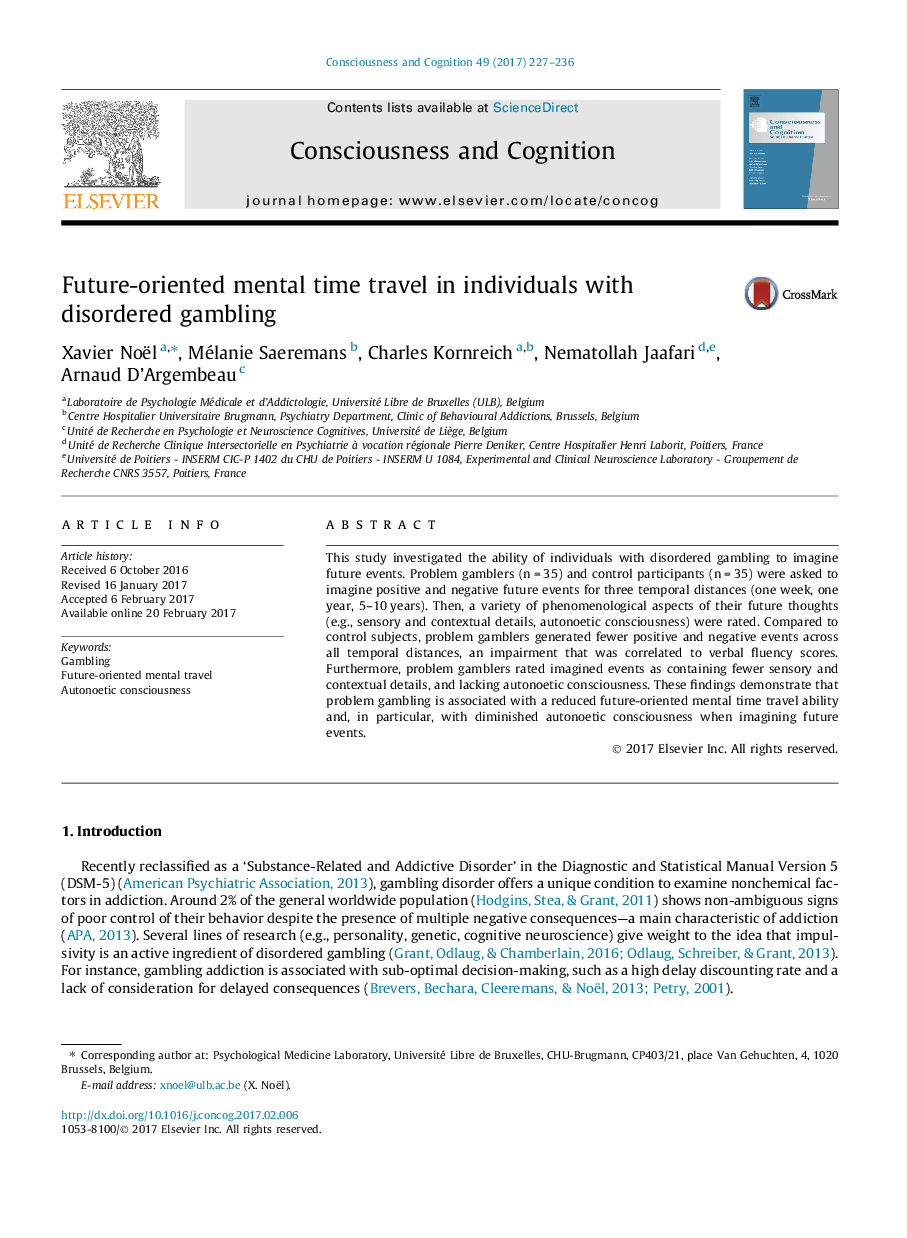| Article ID | Journal | Published Year | Pages | File Type |
|---|---|---|---|---|
| 5041872 | Consciousness and Cognition | 2017 | 10 Pages |
â¢We investigated the ability to imagine future events in disordered gambling.â¢Participants had to imagine positive and negative future events across temporal distances.â¢Aspects of their future thoughts (e.g., autonoetic consciousness) were self-rated.â¢Problems gamblers rated imagined events as containing fewer sensory and contextual details.â¢Problem gamblers had diminished autonoetic consciousness when imagining future events.
This study investigated the ability of individuals with disordered gambling to imagine future events. Problem gamblers (n = 35) and control participants (n = 35) were asked to imagine positive and negative future events for three temporal distances (one week, one year, 5-10 years). Then, a variety of phenomenological aspects of their future thoughts (e.g., sensory and contextual details, autonoetic consciousness) were rated. Compared to control subjects, problem gamblers generated fewer positive and negative events across all temporal distances, an impairment that was correlated to verbal fluency scores. Furthermore, problem gamblers rated imagined events as containing fewer sensory and contextual details, and lacking autonoetic consciousness. These findings demonstrate that problem gambling is associated with a reduced future-oriented mental time travel ability and, in particular, with diminished autonoetic consciousness when imagining future events.
